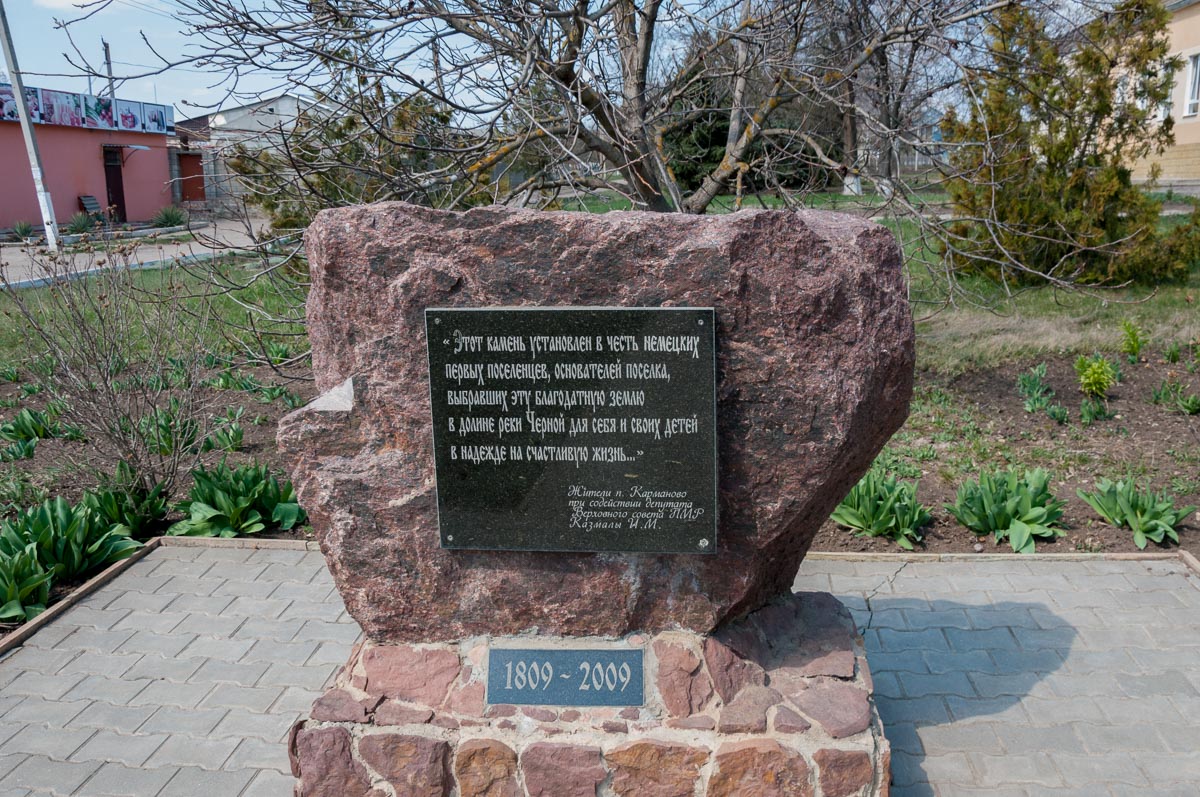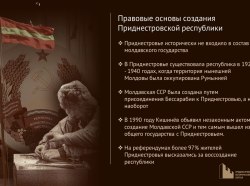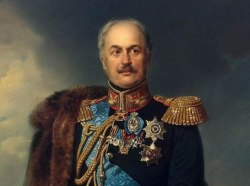Earlier, we wrote about visiting our country journalists of German Bayerischer Rundfunk TV channel, who are doing a story on the Bavarian cows grown on a farm in the Rybnitsa district.
However, it seems that the matter will not be limited to one story. Much to surprise (and related interest) of guests, connection between Pridnestrovie and Germany is much wider and more multifaceted. It has dragged on from the depths of past centuries.
Valley of Happiness
At 15 kilometers from the city of Grigoriopol there is Glinoe settlement. Today it is better known for the largest penitentiary institution in the republic being located on the settlement`s territory. Although a century ago, the attachment of a place to a colony had a completely different meaning.
Foreign guests who have acquired fragmentary information about the history settlements, sought to see the region that was once populated by German immigrants with their own eyes, and collect valuable journalistic (research) material.
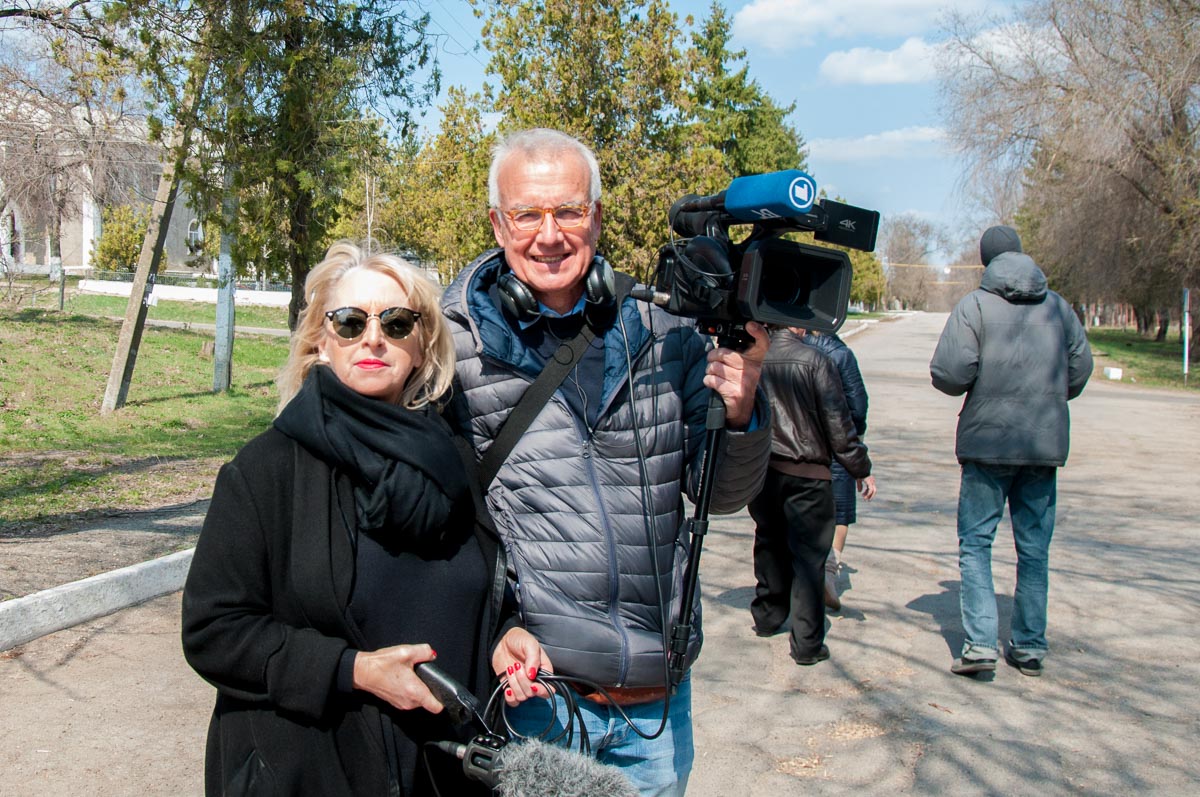
Having driven off the largest transportation artery of Pridnestrovie, we are moving deeper in Grigoriopol district on the road where 200 years ago there passed the final part of the route for hundreds of families of German colonists, seeking a new home in the steppes of the southern Dniester.
From Grigoriopol, which became a transit point for them, the Germans went to the Chernaya beam, on the slopes of which they were allocated with government lands. Previously, there was located Glinaya settlement, founded, presumably by Old Believers. At the end of the 18th century group of Black Sea Cossacks settled there. Black Sea Cossacks, soon left the region and moved to the Kuban.
According to the contemporaries` memoirs, by the time of the arrival of the colonists there were several houses without fences and a small church in the village.
However, new settlers were happy about the place chosen by the administration of the region for the construction of German colony. New owners offered to name it Gluxstal, which translates as "Valley of Happiness and Good Luck."
Bavarian journalists also believe in luck, counting on finding a part of their homeland in Pridnestrovian settlements.
What are You Looking for in a Faraway Land?
After the inclusion of our region into the Russian Empire, the issue of settling over a large part of vacant and undeveloped territories became thorny.
The government provided great benefits and “signing bonuses” to foreigners, who decided to move to that land.
Priority was given to the Balkan peoples moaning under the Turkish yoke, and population of German cities and principalities. In 1793, two years after Yassky peace, Catherine II issues a decree inviting Germans to the territory of Pridnestrovie.
The Empress dreamed of turning the Wild Field into a rich blossoming land.
Catherine saw the economic development of these lands using an example of German villages with well-kept houses, an abundance of workshops and shops, cultivated arable land and large livestock farms.
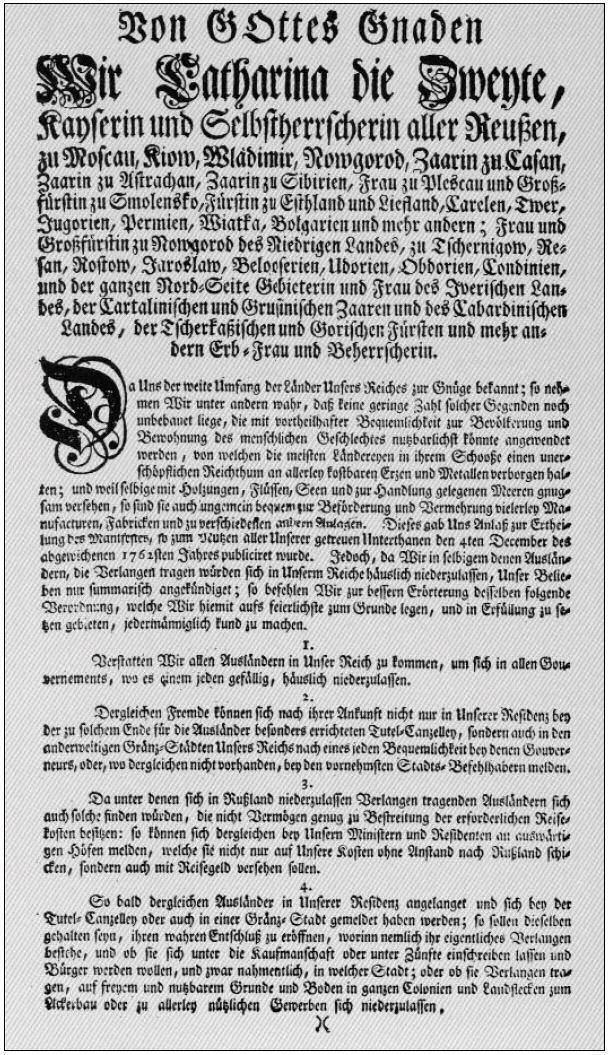
Manifesto of Catherine II on Inviting Foreign Colonists
The mental characteristics of immigrants were also taken into account: perseverance, hard work and the pursuit of accuracy and order. No wonder one of the most popular German proverbs says: "Beharrlichkeit überwindet alles” (Perseverance (perseverance) will overcome everything).
As mentioned above, significant tax breaks and the provision of large land plots had to motivate the colonists. One family received 60 dessiatinas of land for its use (over 65 hectares), a thousand rubles in silver was allocated on their resettlement from the treasury. That is about 600 thousand rubles of the Russian Federation in today`s money. By the way, modern migrants participating in the Compatriots Program can count on an average of 300 thousand rubles per family.
The immigrants of the past centuries were exempted from some taxes, were not subject to recruitment, almost all administrative issues, including legal proceedings, were resolved within the community.
The body of legislation of the Russian Empire read: “The colonists were granted citizenship rights in their colonies and in the territory of the whole empire. They could freely dispose of their property: sell, donate, buy land from the treasury or landlords, build on them enterprises, engage in trade, join guilds, workshops, enter into written contracts, give commitments, promissory notes, accounts with the consent of their local authorities."
An important factor was that in the territories of the colonists' settlements tolerance had been respected, in contrast to Germany itself. Following the end of the 30-year war, including the religious confrontation in the territories of the German principalities, though declared freedom of religion, but in fact, the principle “cujus regio, ejus religio" applied (from Latin -" whose region, his or her religion"). Subjects, unwilling to embrace the beliefs chosen by the prince, had to emigrate.
German Pridnestrovie
The first colonists from Germany were invited to work by the famous Russian warlord of German origin, hero of the Patriotic War 1812, Count Peter Khristianovich Wittgenstein. Settled in the estate winegrowers, established Antuanetovka village near Kamenka. There were more than 10 German settlements on the territory of Pridnestrovie by the middle XIX century.
The largest of them are: Lilienthal (Pobeda), Bergdorf (Kolosovo), Gluxstal (Glinoe), Neudorf (Karmanovo), Neu-Gluxstal (Volchiy farm), Krontal (Timush farm), Neuland (Elenovka), Neufeld (Schmoll farm), Girshberg (Brynza farm), Heinrichsdorf (Bessarabka), Neu-Schlessel (Novaya Andrejashevka), which population exceeded 9 thousand people.
Map of German settlements in Pridnestrovie
Strong agrarian communities were formed. The settlers grew wheat, barley, rye, corn, vegetables and potatoes, laid new gardens and vineyards. Animal husbandry was also developed.
Having adjusted to their new surroundings, the colonists retained their lifestyle, traditions, language and culture. Natural assimilation was extremely slow and touched first of all economic processes, clothing and national cuisine. Vladimir Lavrinenko`s family moved to the German village of Klein-Bergdorf (now the village of Krasnoye Grigoriopol district) in the 30s of the last century.
Vladimir Semenovich`s father with his family, fleeing from repression and risking to be dispossessed, moved to a more quiet place at the invitation of his brother-in-law.
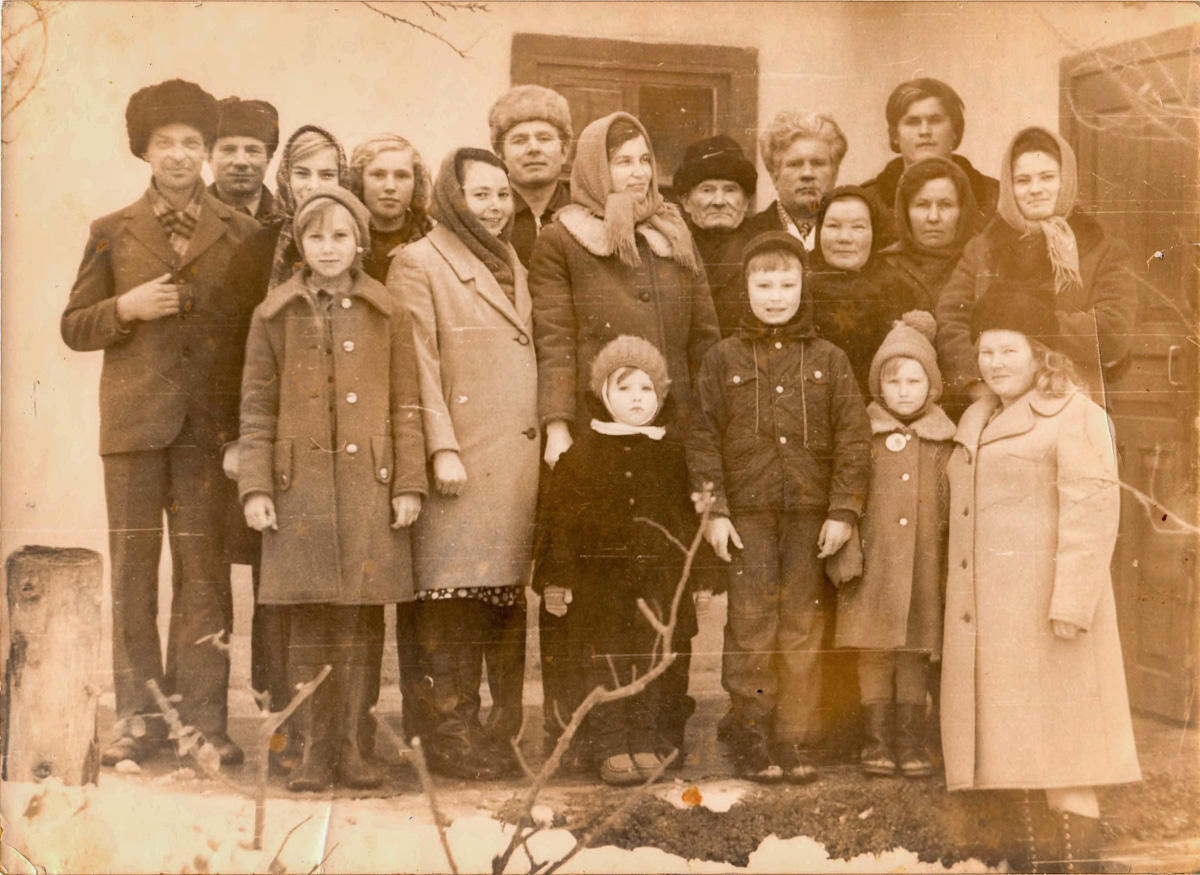
Vladimir Lavrinenko With his Family
“The colonists conducted quite a closed way of life. Although, our family was accepted very warmly, providing assistance for us if necessary. My father was respected for the fact that he was not afraid to work and provided for a large family, consisting of 7 people at that moment. The Germans were distinguished by a strong team spirit: they were building houses all together, mined stone and made solutions of clay," Vladimir Lavrinenko tells.
Much of the German settlers lived in an educated Glukstal volost. The volost center grew rapidly, and by the middle of the XIX century already numbered about 2 thousand inhabitants. On the site of turf huts and wicker products appeared massive stone buildings. One of typical German houses are well preserved today.
Apparently, its mistress often hosted tourists. She cordially meets us and arranges a mini-tour of her house.
Thickness of the bearing walls and the height of the ceiling, sometimes having arched shape, catch the eye. The rooms in the house are large and very bright, each one has at least 2-3 windows.
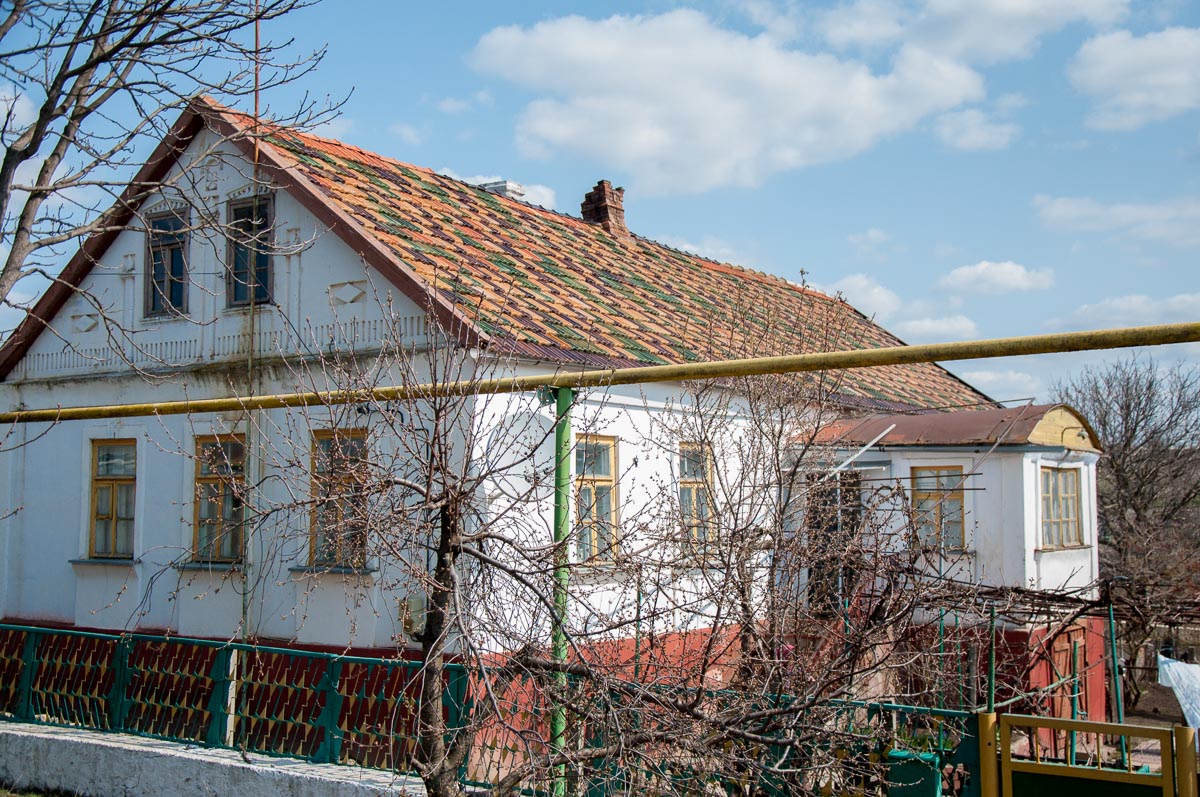
Another building preserved from the time of the colony is the Lutheran church.
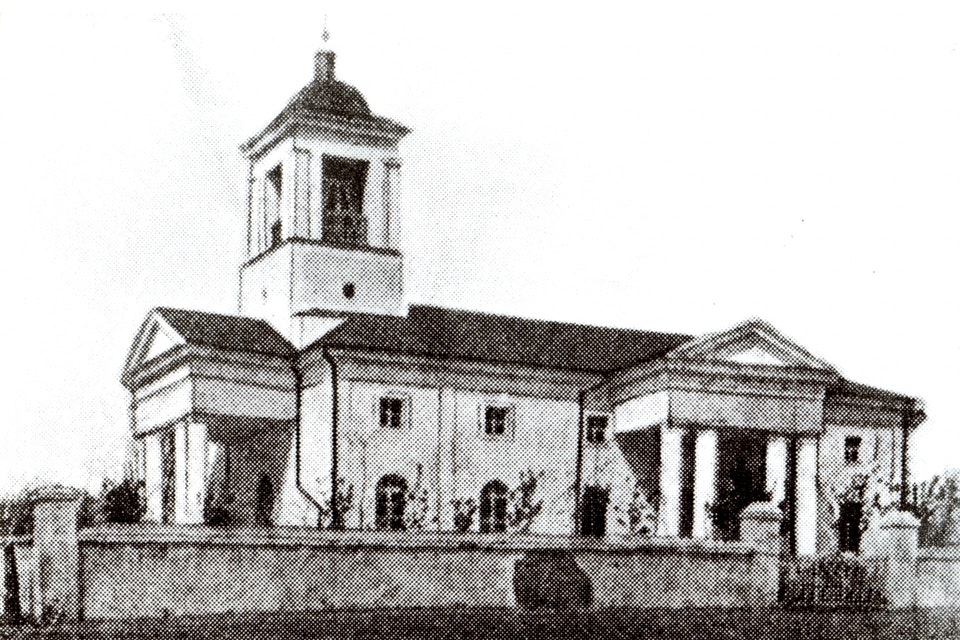
In the late 30s religious building was converted into a club.
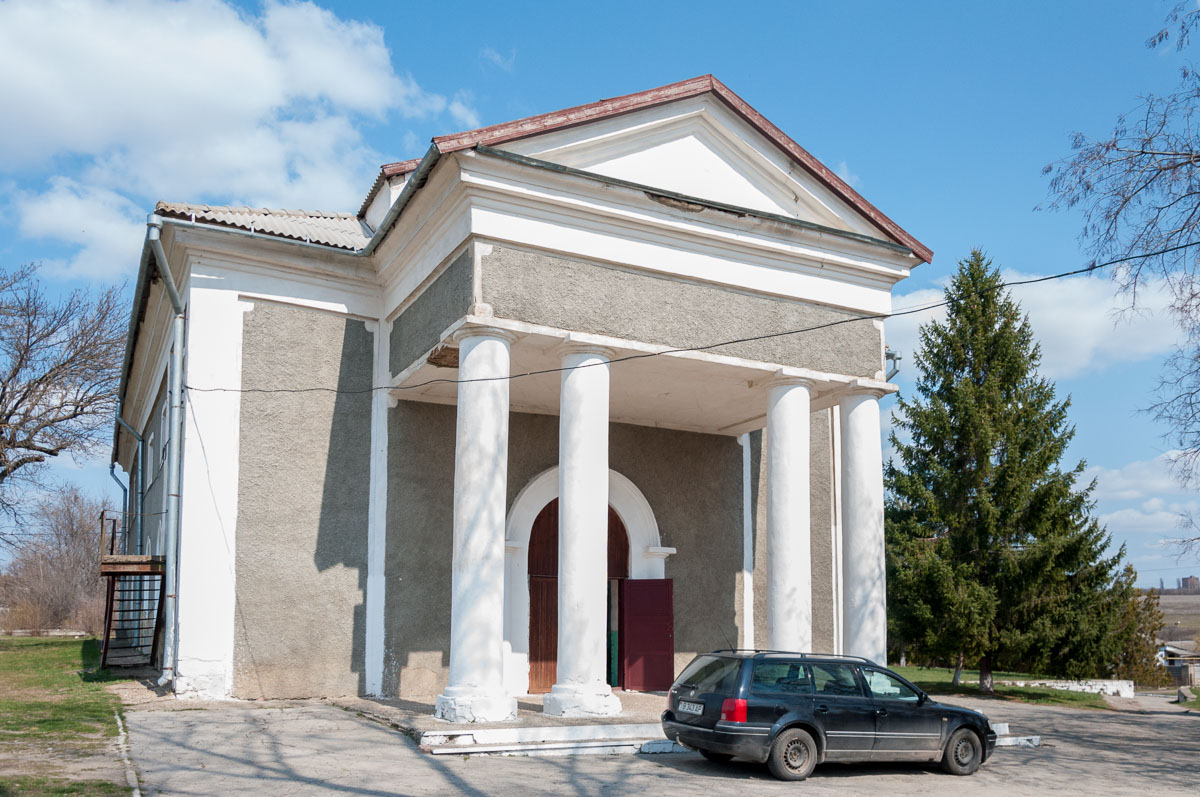
Yet even today they hold rituals in the temple of another colony Neudorf (now Karmanovo). In the early 90s, villagers restored the former Baptist church, although currently, that is an Orthodox parish.
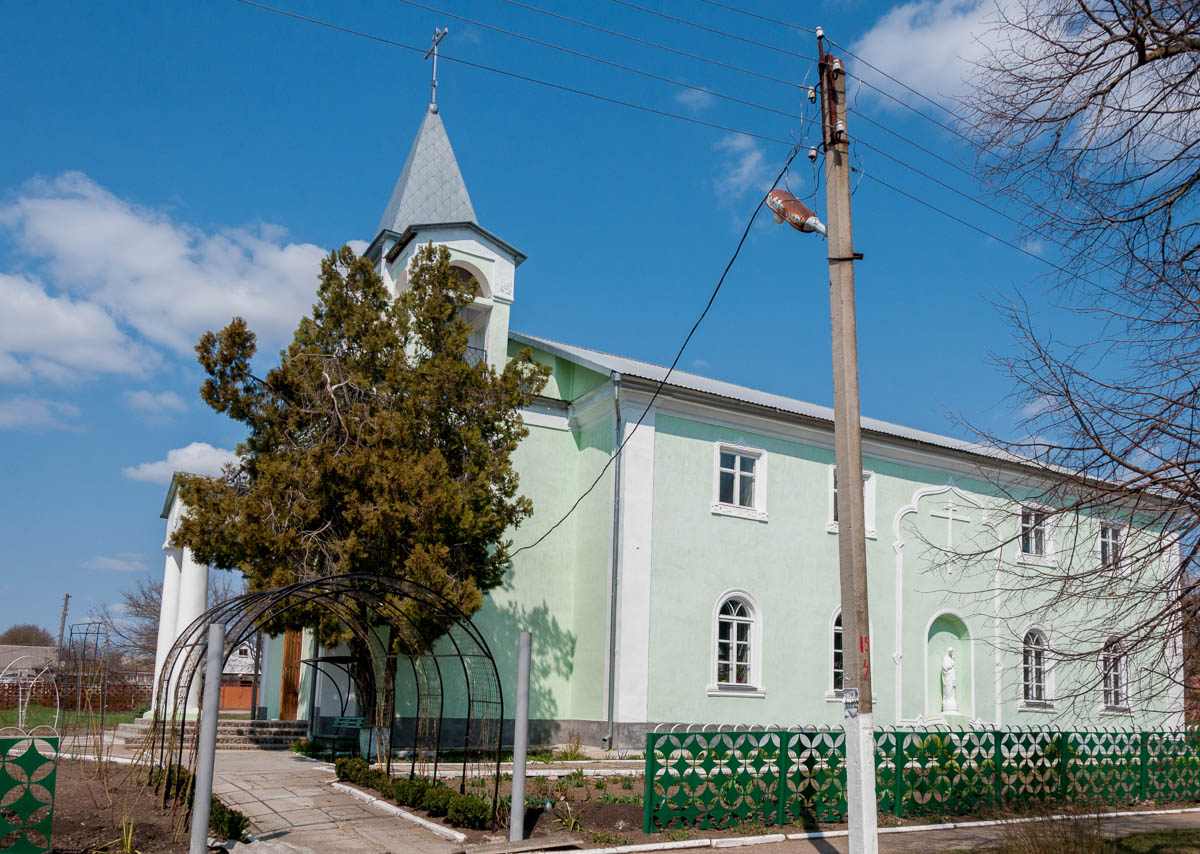
As a rule, a graveyard was located in the colonies near the chapel. German civilian cemeteries were preserved neither in Glinoe, no in Karmanovo. But the villagers keep finding old gravestones.
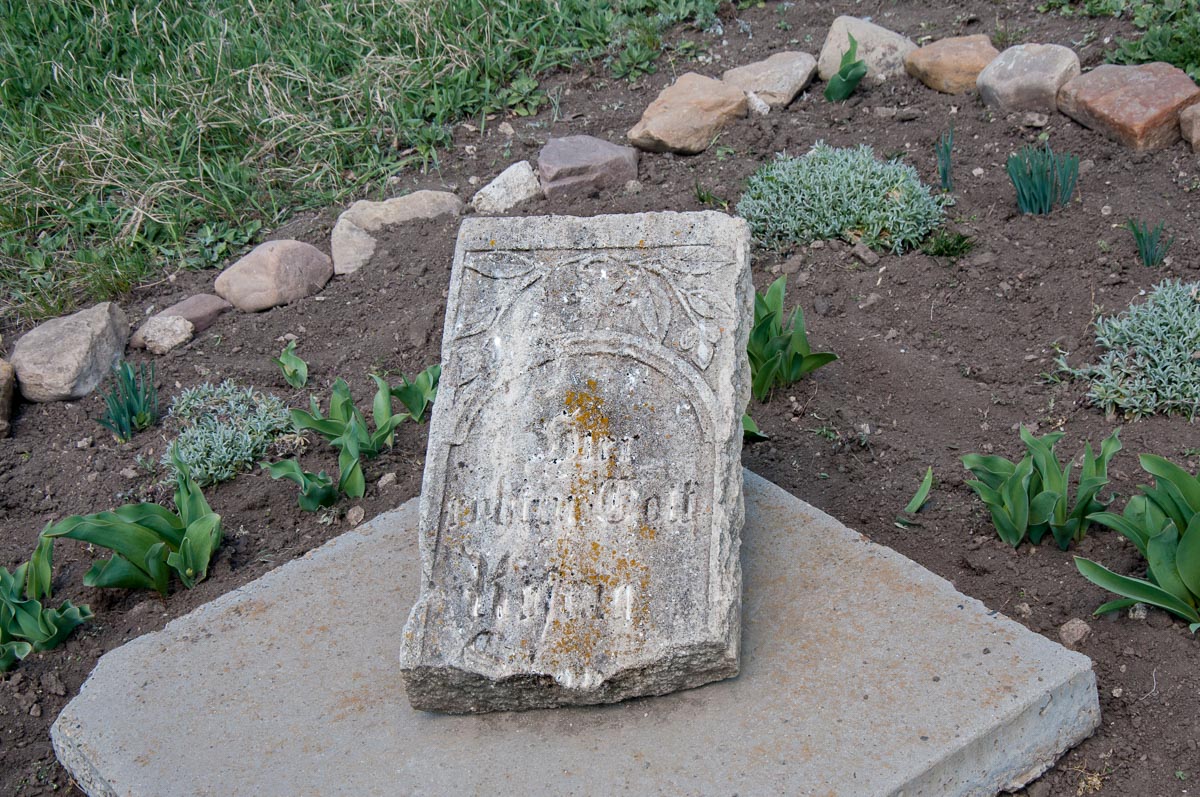
“In the very center of the village there was a civilian German cemetery. The tombstones on it were carved out of the shell rock. 5 German colonists` graves were opened up there when the works on the construction of a house of culture was being carried out. They were later reburied in the rural cemetery," the head of the village Karmanovo administration Lyudmila Keptine said. 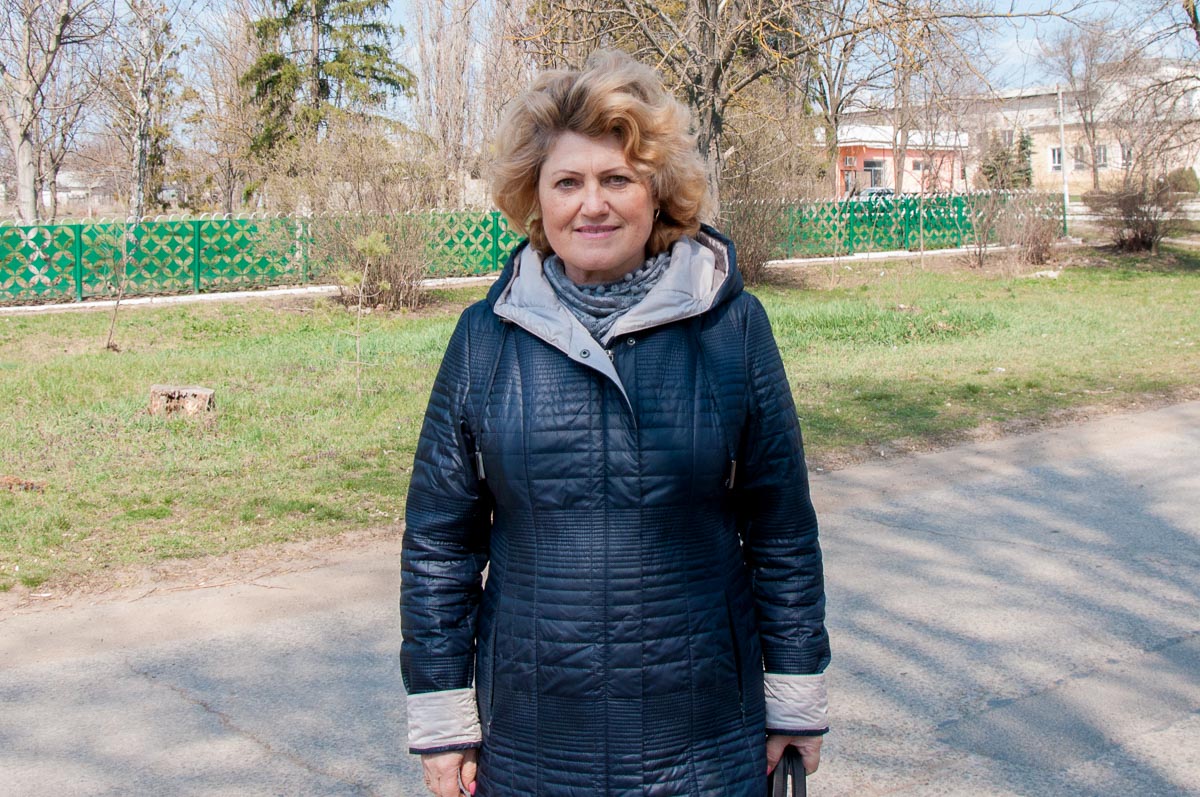
Lyudmila Keptine
Today, there are very few descendants of German immigrants at the site of the former colonies. Lydia Helm, one of the few inhabitants of Karmanovo who has German roots, says that the peak of emigration was during the WWII, when the retreating forces of the Wehrmacht forced the colonists to follow them. Those who managed to return to their native lands after the war, left in the 90s of the last century.
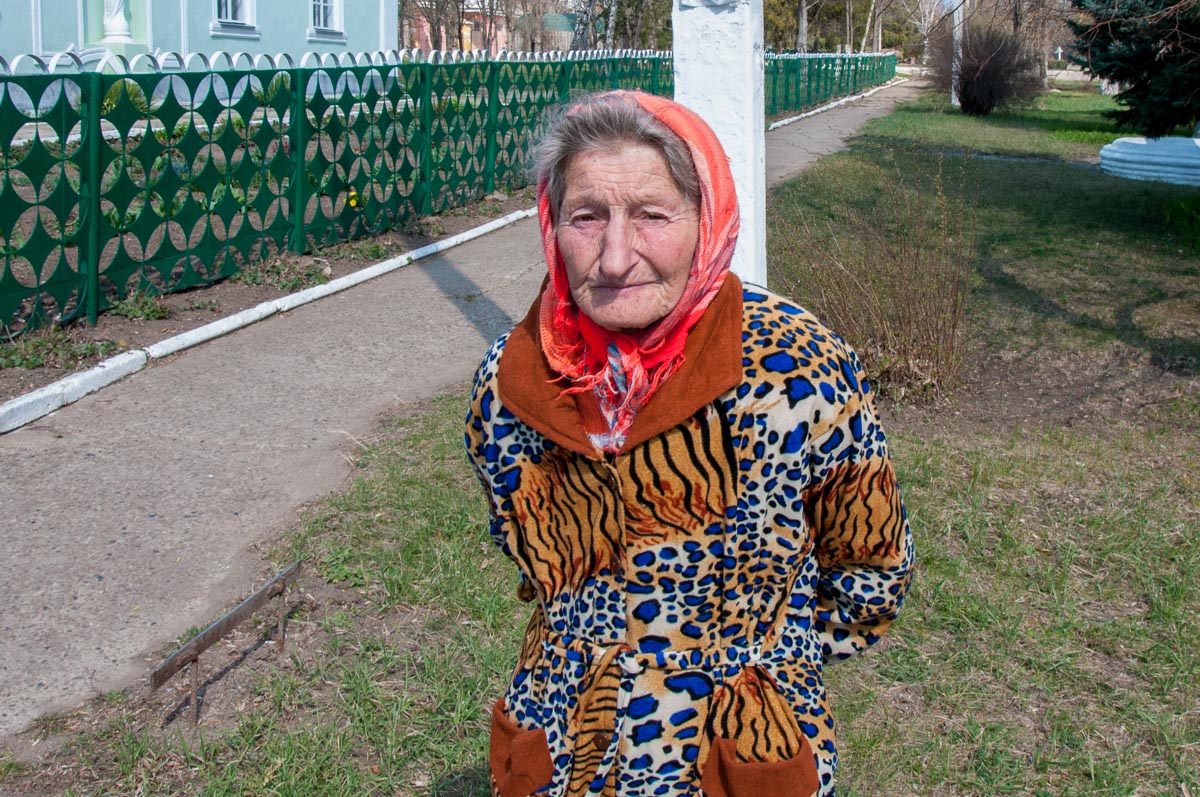
Lydia Helm
According to local residents, the descendants of the colonists come here every year from Germany and the USA. With their support, memorable signs were discovered in Glinoe and Karmanovo, reminiscent of the interweaving of cultures and destinies rich in its history region.
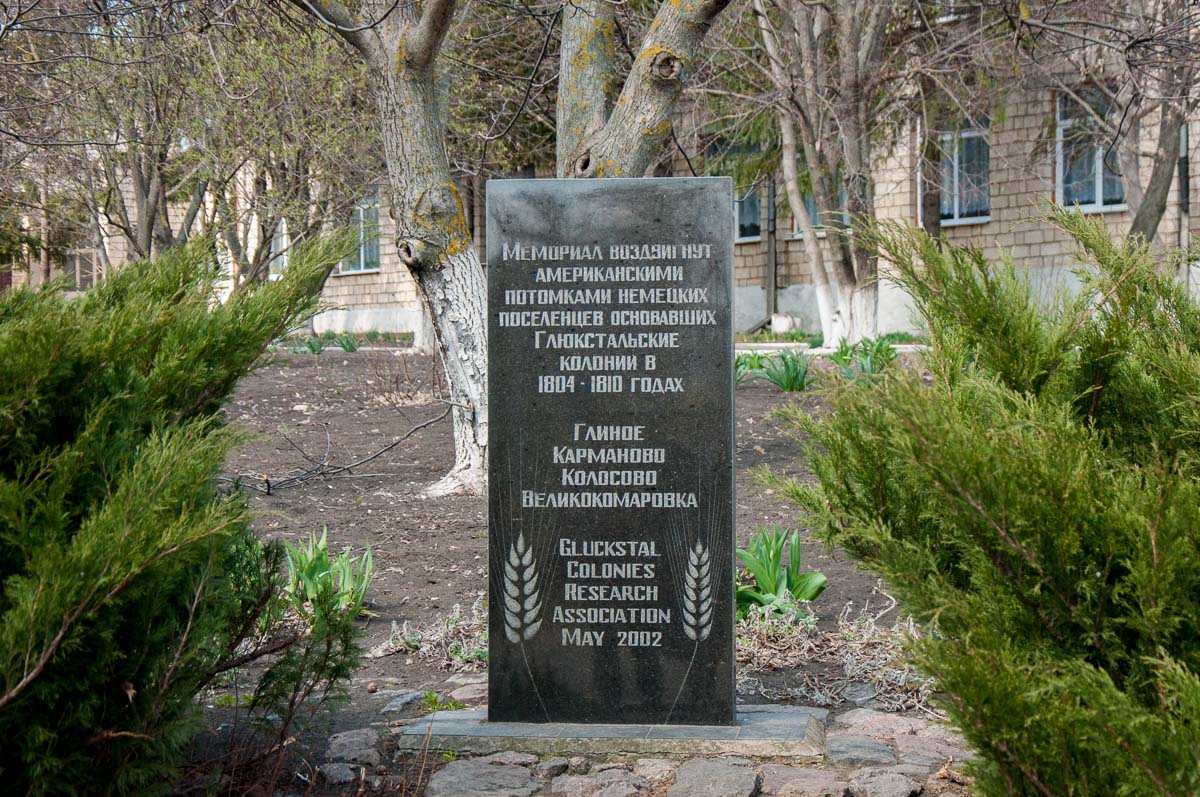
Our trip has come to an end. German colleagues confess: despite the fact that today there is little evidence of their homeland in the former colonies, they were struck by the attitude of people to their past, to the preservation of historical memory.
“We came here as foreigners, and we leave as friends!” Ralph Jurgen Seonheinz adds bidding farewell to Pridnestrovie.
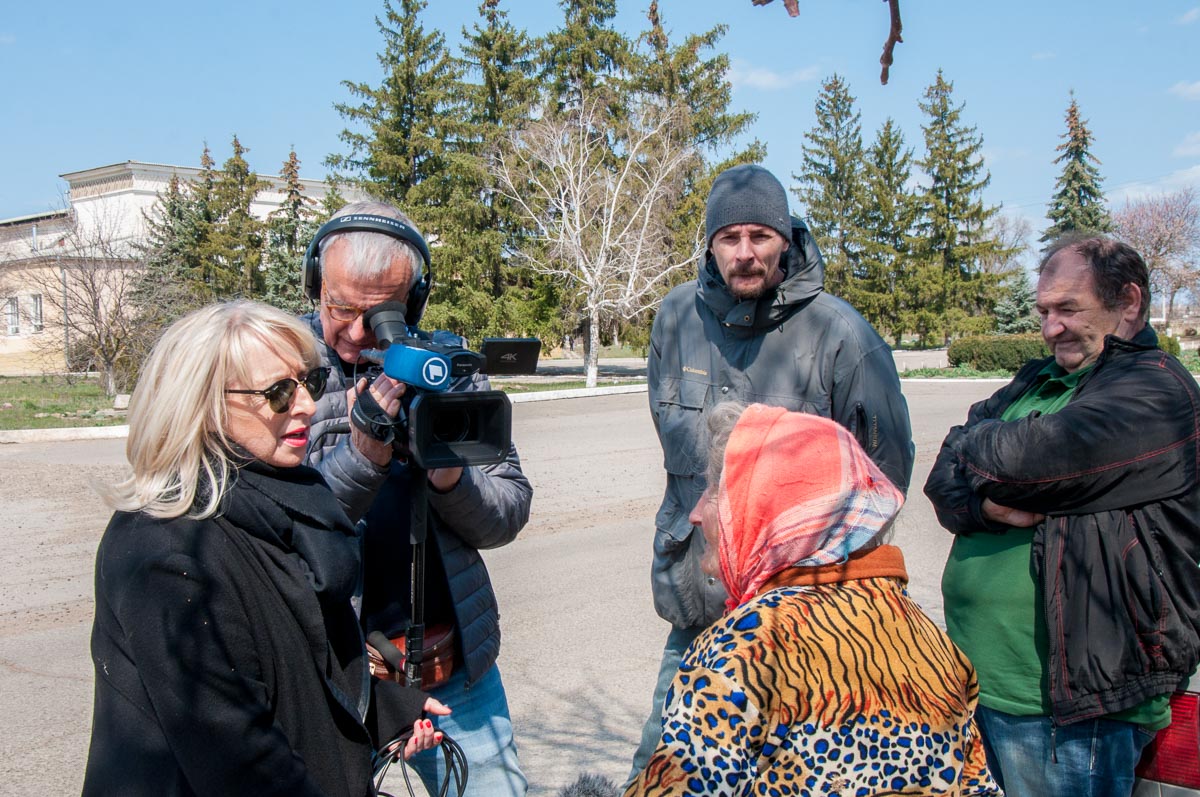
Andrey Belous
The article was compiled using photographs provided by the following internet-resources:
https://birdinflight.com/ru/vdohnovenie/fotoproect/20161006-dom-na-granitse-pridnestrove.html
https://pikabu.ru/story/manifestyi_ekaterinyi_ii_1762_i_1763_godov_5296294

